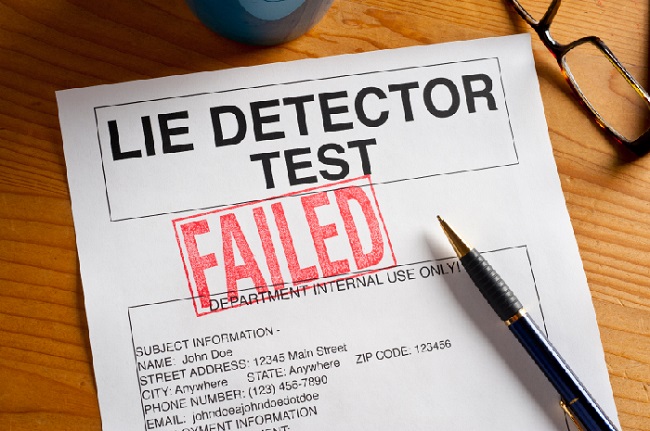
Kenyatta graft war: Experts smell 'lies' in lie detector
Polygraph: An instrument for the simultaneous electrical or mechanical recording of several involuntary physiological activities including blood pressure, skin resistivity, pulse rate, respiration, and perspiration, used especially as a lie detector.
That is the Collins dictionary’s definition of the gadget that may soon join breathalysers in the list of the most dreaded government tools — if President Uhuru Kenyatta’s Madaraka Day speech is to be implemented fully.
VETTING
“As an initial step, all heads of procurement and accounts in government ministries, departments and agencies ... will undergo fresh vetting, including polygraph testing to determine their integrity and suitability. Those who fail the vetting will stand suspended,” said Mr Kenyatta last Friday.
After the government’s directive on Monday that all government procurement officers should step aside to allow fresh vetting, the polygraph is sure to gain currency.
But even as the president vouches for the devices to aid the vetting of top government officials, psychologists are sceptical of their ability to produce actionable results.
Advertisement
Because the machines are made to test human conditions which can never be the same for everyone, those who study the human mind believe polygraphs should be treated with a pinch of salt.
Mr James Mbugua, a psychology lecturer at Africa Nazarene University, says scientific research has proven that testing by the gadgets can be influenced by many external factors.
“Subjecting civil servants to the tests and sacking them on the outcome of the tests will open the government to legal suits,” he says.
THE LAW
He reasons that the machines may give lawyers various points of argument, wondering whether polygraph tests are admissible in court.
“Let’s rethink on tightening systems to safeguard the Kenyan taxpayers’ hard-earned money,” he says. “Western governments do not rely on polygraph tests!”
Ms Maryanne Njihia, a psychologist at Hekima Counselling Services in Nairobi, says the metrics tested by polygraph machines can vary because they focus on body functions that can be “as a result of other underlying issues which are unrelated to the issue at hand”.
“Moreover, there’s no evidence that any pattern of physiological reactions is unique to deceptions,” she adds.
However, Ms Njihia observes that the use of the machines may make some people confess wrongdoing.
“They can deter undesired activity as well as instill public confidence. I would suggest that the machine to be used together with other aides like use of psychologists,” she reasons.
Joining the list of those opposed to the polygraph machines is Mr Kwame Owino, the chief executive Officer of the Institute of Economic Affairs.
QUESTIONS
In an interview on Citizen TV on Monday, Mr Owino said they cannot be an effective tool even in establishing whether a person is lying.
On social media, opinions have been flying on whether to use polygraph machines.
While some are already predicting a polygraph procurement scandal ahead, others have been “educating” Kenyans on how to pass the machine’s test.
Lawyer Nelson Havi tweeted on Saturday that the legal admissibility of polygraph machines stands on shaky ground.
“Someone tell President Kenyatta that a polygraph is a perilous test; worse than a lawyer asking a Mercutio or Wodu Wakiri-like witness a question whose answer the lawyer doesn’t know. The judge, the lawyer and law will be profoundly embarrassed and the gallery [sic] exceedingly amused,” he said.
Activist Boniface Mwangi on Monday tweeted wondering who will compose the questions to be asked during polygraph tests.
ALREADY IN USE
“Will [President Kenyatta] write the questions and the most corrupt institution, Kenya Police, conduct the interviews?” he posed.
Analyst Benji Ndolo preferred to make light of it.
“Next week in Nation classifieds section: ‘Tuition polygraph coaching, how to perform and pass. Don’t get nabbed in Uhuru Gov Procurement Sting operation, janjaruka my fren,’” he tweeted on Monday.
However, it emerges that some private companies have been using polygraph tests on employees, and in 2015, a Labour Court judge said the results of such test “would be sufficient grounds for dismissal”.
Justice Nzioki wa Makau, while hearing a case filed by Mr Hassan Mustapha, an employee of Hippora Business Solutions, was told that a polygraph was among the tools used to build a case about the employee’s involvement in fraud.
The company’s human resource manager Martha Kiere told the court that they had conducted a polygraph test but had not filed it in their response to the suit because Kenya’s laws did not recognise it.
“Hippora Business Solutions has indicated that there was a polygraph test taken and the results were not in favour of Mr Mustapha. This would be sufficient grounds for dismissal. The claimant was thus dismissed for just cause. The arrest was not malicious,” the judge said in his verdict of June 15, 2015.
Credit: Nation.co.ke
